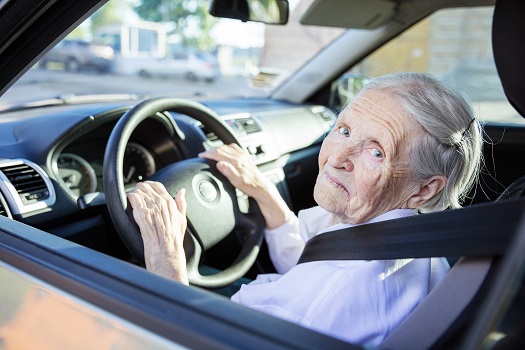Being able to drive a car is an important way to maintain independence, but it can be unsafe for some seniors to drive. There’s no definitive age at which seniors need to stop driving. Instead, this time varies based on a combination of each individual senior’s vision, mobility, and cognitive function. Here are a few things you should consider to determine whether it’s safe for your senior loved one to be driving.
Assess Driving After Any Major Health Changes
Any time your loved one has some sort of major health change, you need to have a talk about how it may affect his or her driving. If your loved one is diagnosed with a condition such as dementia, a stroke, arthritis, Parkinson’s disease, a hip fracture, or vision loss, he or she might not be able to drive safely. Having these conditions doesn’t automatically mean your loved one shouldn’t drive any more, but they could affect his or her health and driving ability.
Driving may not be the only safety concern you have about your parent, so you may find extra peace of mind by hiring a professional caregiver. Families looking for top-rated Barrie senior care providers can reach out to Home Care Assistance. From respite care to specialized Alzheimer’s, dementia, stroke, and Parkinson’s care, there are many ways we can make life easier for seniors and their loved ones.
Observe Driving Skills
Even if your loved one doesn’t have any sudden health changes, he or she may experience a gradual decrease in health that eventually makes driving unsafe. If possible, try riding along with your loved one a few times to evaluate his or her driving skills. Pay attention to whether he or she can drive at the correct speed limit, move safely between traffic lanes, and obey road signs while driving. Constant mistakes or close calls may indicate a problem. There may also be an issue if your loved one has started refusing to drive at night or in unfamiliar areas.
Pay Attention to Driving Ability After Any Incidents
People of any age can get speeding tickets, accidentally run stop signs, or get into accidents. However, it’s important to carefully assess the circumstances surrounding any incident to see if the underlying cause might be age related. You may also need to discuss changes to your loved one’s driving habits if he or she is having repeated incidents, especially ones involving hitting stationary objects such as mailboxes or parked cars.
Even if your loved one has to give up driving, he or she can still enjoy a high level of independence. Barrie at-home care experts are available to provide high-quality care to seniors on an as-needed basis. From assistance with mobility and exercise to providing transportation to the doctor’s office and social events, there are a variety of ways professional caregivers can help your aging loved one continue to live independently.
Consider Cognitive Abilities
In very mild cases of dementia, seniors might still be able to drive safely. Since changes to cognition are so gradual, it can be difficult to tell when those changes are severe enough for a senior to stop driving. If your loved one is calling you or being late to scheduled activities because he or she is lost, it can be an issue. It may also be helpful to think about any recent changes to your loved one’s personality and consider whether an increase in anger or timidity might be causing problems while he or she drives.
If your loved one has been diagnosed with dementia, it may be time for him or her to give up driving. Even when families have the best intentions, caring for a senior loved one with dementia can be challenging. Fortunately, Home Care Assistance is here to help. We are a leading provider of dementia care. Barrie, ON, families can take advantage of our flexible and customizable care plans, and our caregivers always stay up to date on the latest developments in senior care. If you need professional care for your senior loved one, Home Care Assistance is just a phone call away. Reach out to one of our Care Managers today at 647-970-3803.
